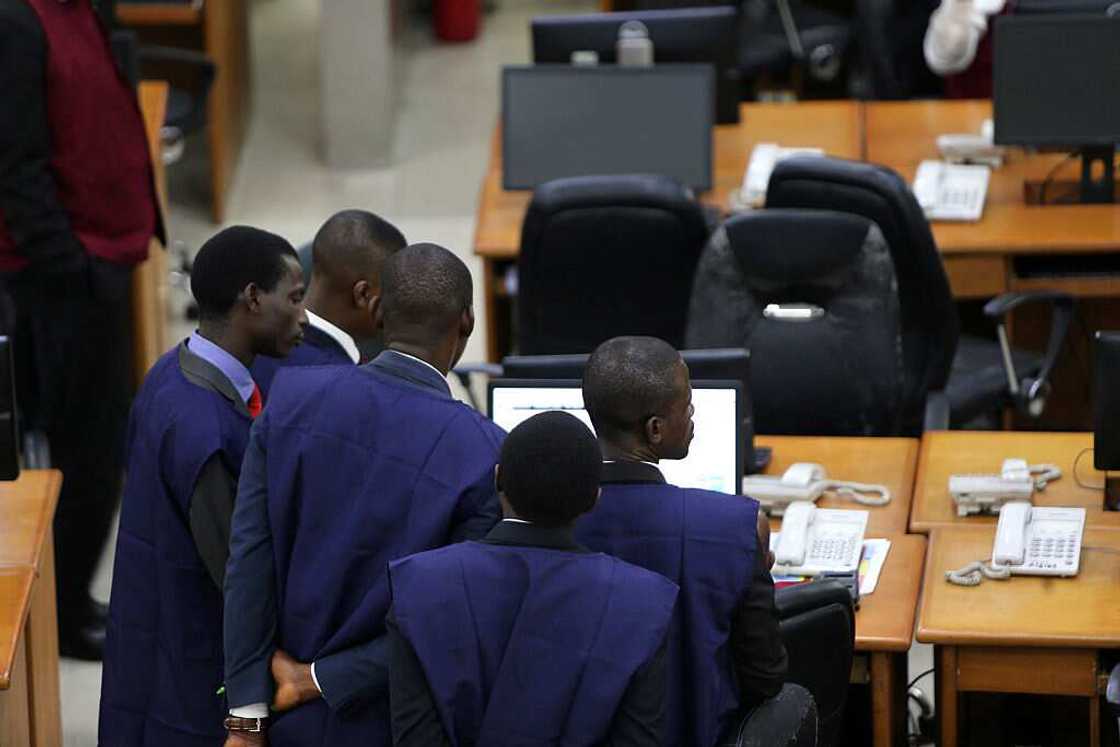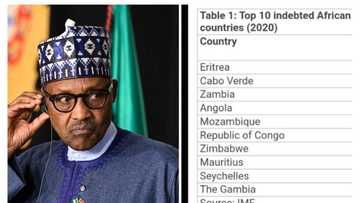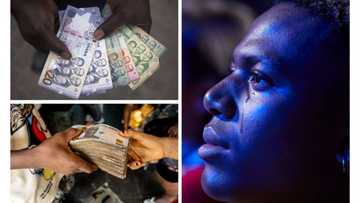Nine Nigerian Banks Face Rating Downgrade As Foreign Loans Get Very Expensive Over Naira Depreciation
- Nigerian bank's rating is set to be downgraded by Moody a globally recognised rating agency
- The decision is being considered due to the Naira depreciation, which is making the bank's foreign loans very expensive
- The public can use these ratings to determine certain financial institutions' safety and soundness
Moody’s Investors Service, one of the leading credit rating agencies, has announced that it has placed on review for downgrading the rating of nine Nigerian banks.
The downgrading covers the banks' long-term deposit ratings and long-term issuer and senior unsecured debt ratings.
The rating agency disclosed this over the weekend while citing the impact of the lingering foreign exchange crisis in the country.

Source: Facebook
Tribune reports that Moody said the review was necessitated due to the Deposit Money Banks’ (DMBs) in Nigeria's operational ability to meet their foreign currency obligations(loans) as well as their capitalisation and asset quality.
PAY ATTENTION: Follow us on Instagram - get the most important news directly in your favourite app!
The affected banks are Access Bank Plc, Zenith Bank Plc, First Bank of Nigeria Limited, United Bank for Africa Plc, Guaranty Trust Bank Limited, Union Bank of Nigeria plc, Fidelity Bank plc, FCMB Limited and Sterling Bank Plc.
A statement issued by the agency reads:
“Constraints on domestic oil production, capital outflows, and the increased cost of the country’s imported refined petroleum products, coupled with US dollar strengthening, have together weighed on the availability of foreign currency liquidity in the country despite higher oil prices and material discrepancies between official and parallel market exchange rates persist in the country.
“Nigeria’s foreign exchange reserves have declined to $38 billion as of September 2022 from $40 billion as of January 2022 despite higher oil prices, and we understand that the central bank, which is the main provider of foreign exchange in the country, has consequently scaled down and become increasingly selective with its foreign currency allocations.”
It further stated that the review for a downgrade on the long-term ratings of Nigerian banks also captures the risk that a potential material depreciation in the country’s foreign exchange rate could pose to the banks’ capitalisation and asset quality.
Moddy list other reasons
Moody said:
“On average, around 40% of loans extended by Moody’s-rated Nigerian banks as of December 2021 were denominated in foreign currencies, predominantly dollars.
"Some of these borrowers are vulnerable to a further depreciation of the naira because they do not earn foreign-currency income, and a weaker naira would harm their repayment capacity.
"The banks’ relatively high level of dollarisation also constrains the central bank’s capacity to act as a lender of last resort in case of need.”
The agency further explained that its rating review will focus on assessing the banks’ operational ability to meet their foreign currency obligations,
It added:
“The rating review will take into account the expected evolution in foreign exchange reserves, as well as the various tools at the banks’ disposal to conduct foreign currency payments amid reduced availability of US dollars.”
Banks release names of customers using fake visa to buy cheap dollar for resale
Meanwhile, in compliance with CBN directives, ten Nigerian banks have revealed the names of customers buying cheap dollars to resell on the black market likely.
In a circular in July 2021, CBN directed banks to publicize the identities of persons who engage in such behaviour and to restrict them from obtaining currency in the future
The huge gap between the black market and the official rate has further created a market for some unscrupulous Nigerians to profit from
Source: Legit.ng





